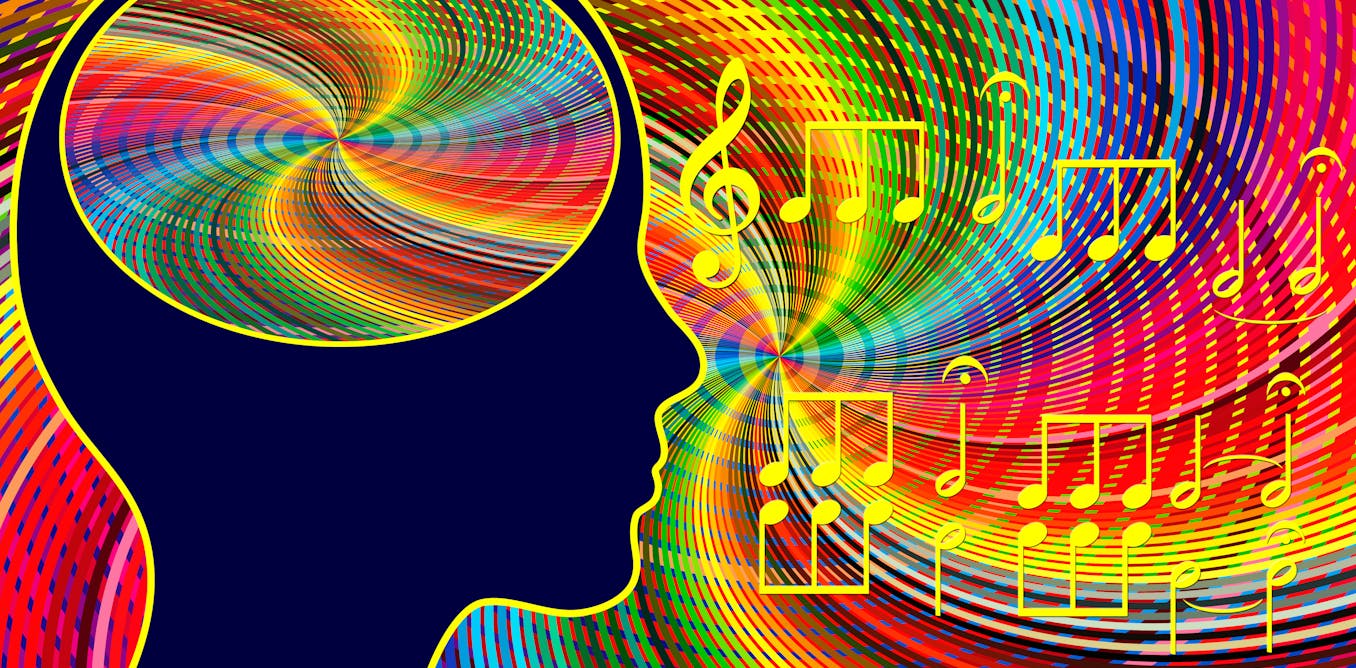Exploring the effects of happy and sad music
Drawing inspiration from
studies on emotionally intense cinematic experiences, we recently
published a study highlighting the effects of complex musical compositions, particularly Vivaldi’s Four Seasons, on dopamine responses and emotional states. This was designed to help us understand how happy and sad music affects people in different ways.
One major challenge was how to measure our participants’ dopamine levels non-invasively. Traditional functional brain imaging has been a common tool to track dopamine in response to music – for example, positron emission tomography (PET) imaging. However, this involves the injection of a radiotracer into the bloodstream, which attaches to dopamine receptors in the brain. Such a process also has limitations in terms of cost and availability.
In the field of psychology and dopamine research, one alternative, non-invasive approach involves studying how often people blink, and how the rate of blinking varies when different music is played.
Blinking is controlled by the
basal ganglia, a brain region that regulates dopamine. Dopamine dysregulation in conditions such as Parkinson’s disease can affect the regular blink rate. Studies have found that individuals with Parkinson’s often exhibit
reduced blink rates or increased variability in blink rates, compared with healthy individuals. These findings suggest that blink rate can serve as an indirect proxy indicator of dopamine release or impairment.
While blink rate may not provide the same level of precision as direct neurochemical measurements, it offers a practical and accessible proxy measure that can complement traditional imaging techniques. This alternative approach has shown promise in enhancing our understanding of dopamine’s role in various cognitive and behavioural processes.
Our study revealed that the sombre
Winter movement elicited a particularly strong dopamine response, challenging our preconceived notions and shedding light on the interplay between music and emotions. Arguably you could have predicted a heightened response to the familiar and uplifting
Spring concerto, but this was not the case.
Vivaldi’s Winter movement was found to elicit a particularly strong dopamine response.
Our approach extended beyond dopamine measurement to gain a comprehensive understanding of the effects of sad and happy music. We also used
EEG network analysis to study how different regions of the brain communicate and synchronise their activity while listening to different music. For instance, regions associated with the appreciation of music, the triggering of positive emotions and the retrieval of rich personal memories may “talk” to each other. It is like watching a symphony of brain activity unfold, as individuals subjectively experienced a diverse range of musical stimuli.
In parallel,
self-reports of subjective experiences gave us insights into the personal impact of each piece of music, including the timeframe of thoughts (past, present, or future), their focus (self or others), their form (images or words), and their emotional content. Categorising these thoughts and emotions, and analysing their correlation with brain data, can provide valuable information for future therapeutic interventions.
Our
preliminary data reveals that happy music sparks present and future-oriented thoughts, positive emotions, and an outward focus on others. These thoughts were associated with heightened frontal brain activity and reduced posterior brain activity. In contrast, sad tunes caused self-focused reflection on past events, aligning with increased neural activity in brain areas tied to introspection and memory retrieval.
So why does sad music have the power to impact psychological wellbeing? The immersive experience of sombre melodies provides a platform for emotional release and processing. By evoking deep emotions, sad music allows listeners to find solace, introspect, and effectively navigate their emotional states.
This understanding forms the basis for developing future targeted music therapy interventions that cater to people facing difficulties with emotional regulation, rumination and even depression. In other words, even sad music can be a tool for personal growth and reflection.

 their entire situation was very strange though to the point we all got dragged into the drama.
their entire situation was very strange though to the point we all got dragged into the drama.
 their entire situation was very strange though to the point we all got dragged into the drama.
their entire situation was very strange though to the point we all got dragged into the drama.

 )
)


